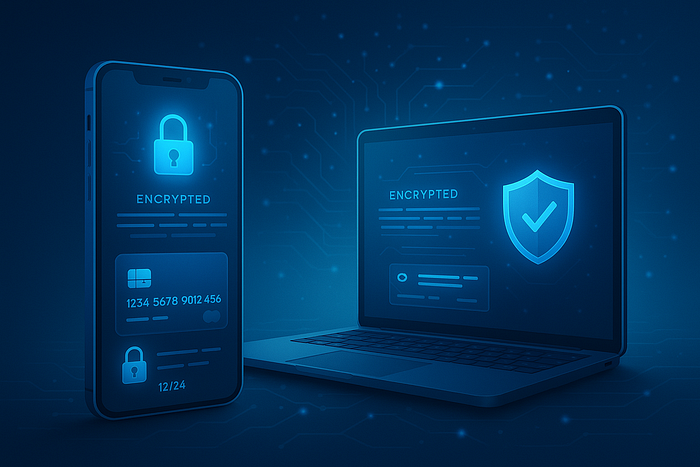In today's fast-paced digital world, payment systems are no longer just a convenience — they are the backbone of modern commerce. Every transaction carries sensitive information, from credit card numbers and bank account details to personal identifiers such as email addresses and phone numbers. With the rapid growth of online commerce, digital subscriptions, and real-money gaming platforms, data privacy has become the non-negotiable core of payment ecosystems.
Why Data Privacy Matters
Consumers expect their financial data to remain secure and confidential. A single breach can lead to severe consequences, including identity theft, financial loss, and a permanent erosion of trust. For businesses, safeguarding this information isn't just a legal obligation; it's a competitive advantage. Organizations that fail to prioritize data privacy risk damaging their reputation and losing customers to more secure competitors.
Moreover, with the rise of regulations like GDPR, CCPA, and PSD2, businesses handling payments must adhere to strict compliance standards. These laws not only enforce security measures but also empower customers to control how their data is collected, stored, and used.
End-to-End Encryption: The First Line of Defense
A core principle of data privacy in payment systems is end-to-end encryption (E2EE). Encryption converts sensitive information into coded data that only authorized systems can decipher. When applied correctly, E2EE ensures that even if a malicious actor intercepts the transaction, the data remains unintelligible.
For instance, when a customer enters their credit card information on a platform, it should never be transmitted as plain text. Advanced encryption protocols like AES-256 or TLS 1.3 have become industry standards, ensuring that digital payment information is safeguarded at every step.
Tokenization: Reducing Risk Without Compromising Experience
Another key technology protecting customer data is tokenization. Instead of storing real card numbers or account information, the payment system replaces sensitive data with unique "tokens" for each transaction. Even if tokens are intercepted, they cannot be reverse-engineered to reveal the original data.
Tokenization not only improves security but also enhances the customer experience. Users can save payment methods for future use without the fear of their information being compromised, making seamless transactions possible on subscription platforms, e-commerce sites, and gaming portals.
Multi-Factor Authentication: Adding Extra Layers
Security in payment ecosystems isn't only about encryption and tokens; it also involves multi-factor authentication (MFA). By requiring multiple forms of verification — such as a password, a fingerprint scan, or a one-time SMS code — MFA significantly reduces the risk of unauthorized access.
For businesses, MFA demonstrates a commitment to protecting user data, increasing consumer confidence. For users, it provides peace of mind, knowing that even if one security measure is compromised, additional layers protect their financial information.
Data Privacy as a Trust Signal
In digital payments, trust is everything. Customers choose platforms not only for convenience and speed but also for security. A transparent privacy policy, visible security certifications, and clear communication about data handling practices act as trust signals. These signals can differentiate businesses in competitive markets like real-money gaming, esports, or subscription services, where users must feel secure every time they interact with the platform.
AI and Monitoring: Proactive Protection
Artificial Intelligence (AI) has revolutionized the way businesses monitor and protect data. Advanced AI algorithms can detect unusual transaction patterns, identify potential fraud, and alert administrators in real time. This proactive approach to data privacy helps prevent breaches before they happen, ensuring that sensitive information never falls into the wrong hands.
Additionally, AI-powered systems can automatically anonymize user data for analysis, providing businesses with actionable insights without compromising privacy. This ensures both operational efficiency and compliance with global data protection standards.
Data Privacy Beyond Technology
While technology is crucial, a privacy-first culture within an organization is equally important. Staff must be trained in best practices for handling sensitive information, including secure password management, phishing prevention, and safe internal communications. Businesses must also implement strict access controls, ensuring that only authorized personnel can view sensitive financial data.
Transparency with customers is vital. Clear communication about how data is stored, processed, and protected fosters trust and loyalty. A customer who understands how their information is safeguarded is more likely to engage with a platform repeatedly, driving long-term growth.
Conclusion: The Competitive Advantage of Privacy
In the rapidly evolving world of digital payments, data privacy is more than a compliance requirement — it is a strategic advantage. Platforms that prioritize privacy and security gain customer trust, reduce risk, and differentiate themselves in competitive markets. By integrating encryption, tokenization, multi-factor authentication, and AI-powered monitoring, businesses can create payment ecosystems that are not only efficient but also resilient and secure.
Ultimately, customers no longer settle for convenience alone. They expect platforms to protect their financial and personal information as carefully as they would their own wallets. Businesses that embrace data privacy as a core principle will not only meet these expectations — they will lead the future of secure, reliable, and trustworthy payment ecosystems.

